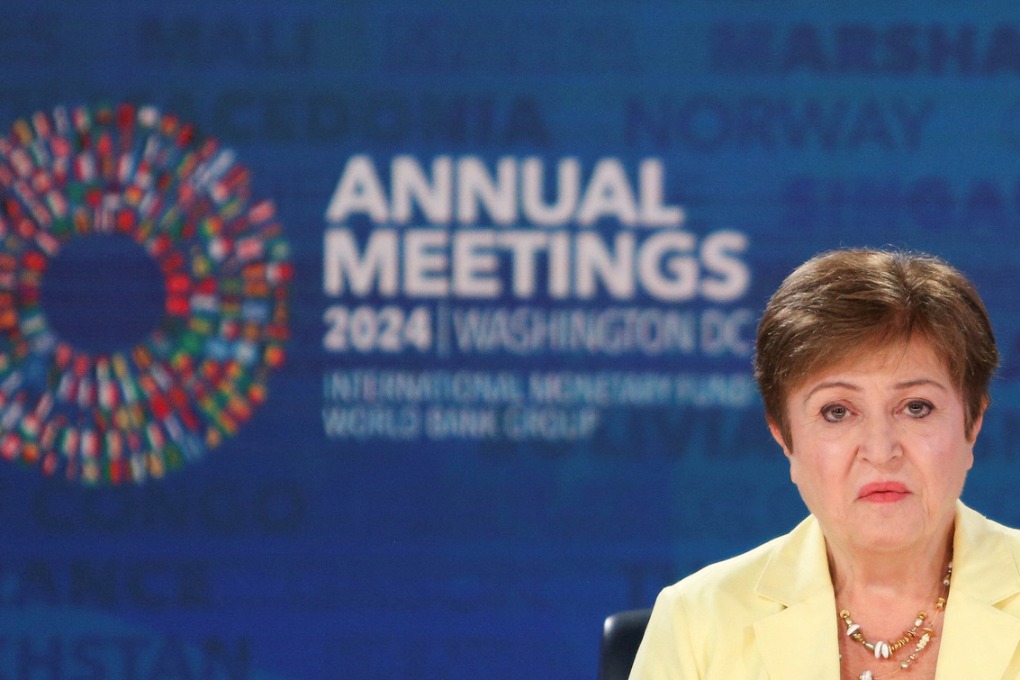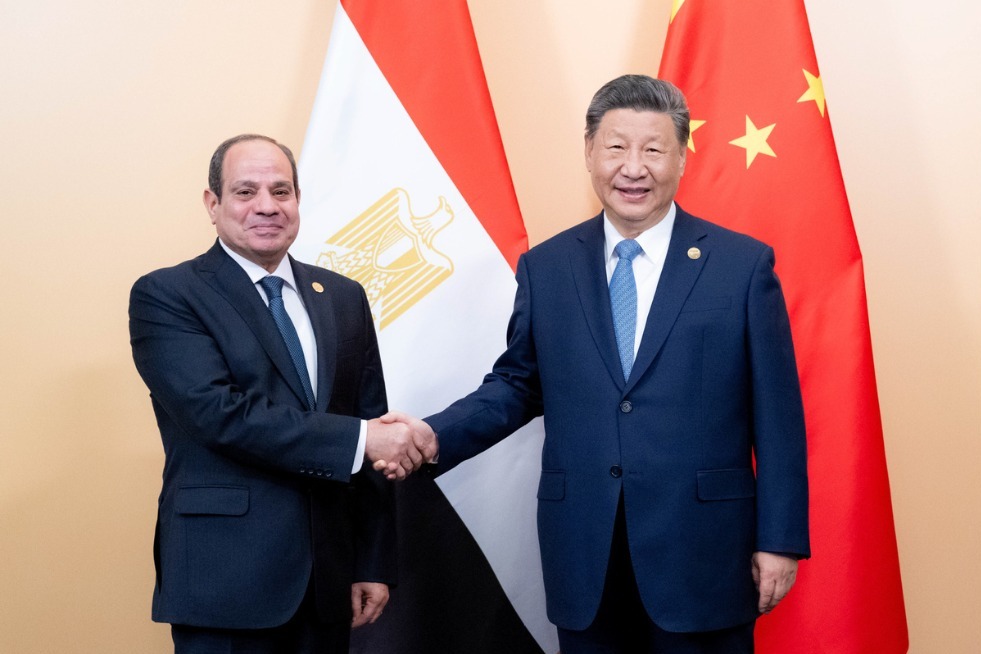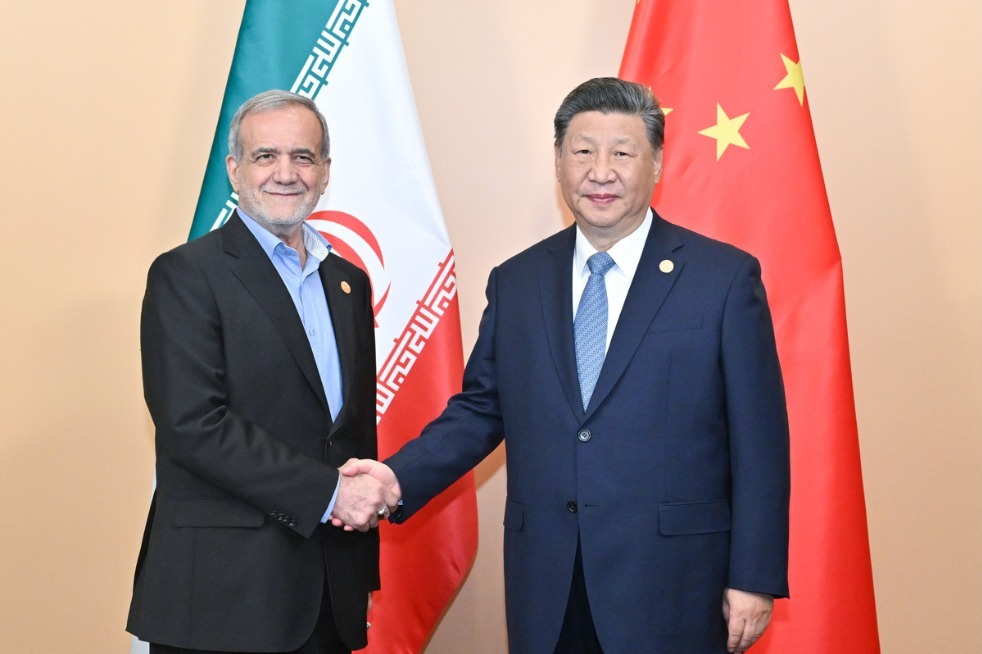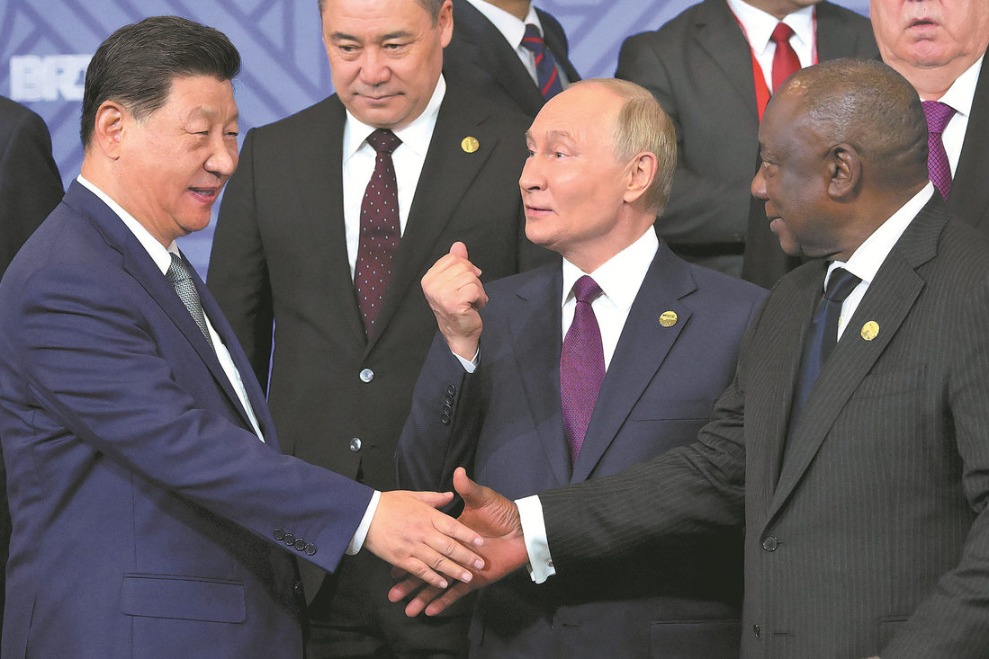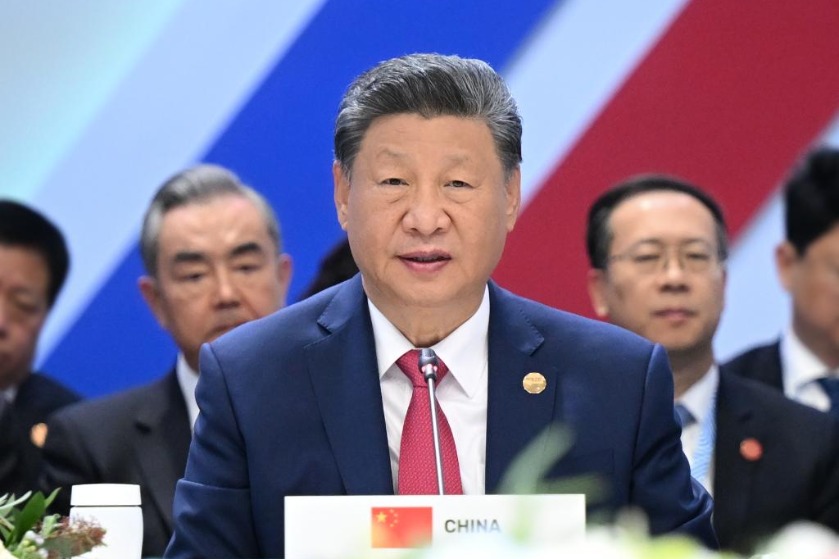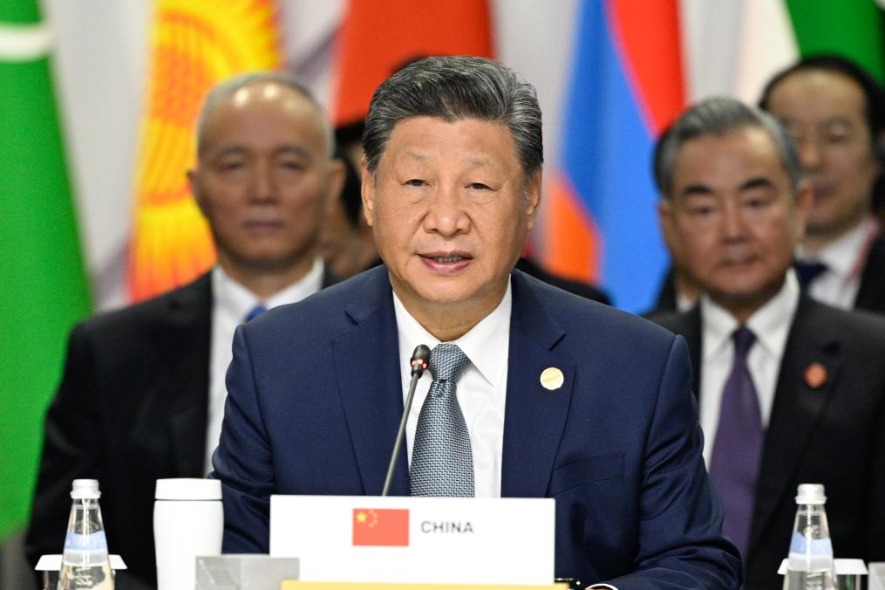Analysts hit out at the use of smear tactics and fake news by Western nations


Analysts have condemned attempts to smear and spread fake news about the Belt and Road Initiative, or BRI, which they said has brought great benefits to the world.
Over the past decade, the BRI has produced remarkable achievements, which have caused concern in some Western countries, the analysts said.
These countries have put forward their own infrastructure plans as a way to counter the BRI. Some Western politicians, scholars and media outlets have even spread false information about China's alleged neocolonialism, debt traps, resource exploitation, and environmental harm, the analysts said.
Nasser Bouchiba, president of the Africa-China Cooperation Association for Development, said Western countries, led by the United States, have proposed similar initiatives, including the Partnership for Global Infrastructure and Investment plan and the India-Middle East-Europe Economic Corridor. However, to date, these projects have mostly been all talk and little action, and some have even fizzled out.
In the name of development, support and equality, these projects have imposed many unequal conditions and used technical restrictions to manipulate the industrial growth of developing nations. However, such actions simply serve the interests of hegemonic countries and hold no genuine value for global development, Bouchiba said.
"Compared to China's BRI, these hollow initiatives are utterly devoid of any advantages and are incapable of replacing the BRI," he said.
Referring to frequent accusations by some Western countries that the BRI is creating a "debt trap", Bouchiba said these nations are using false information and smears to try to hoodwink the public.
For example, persistent claims have been made in Western media that Sri Lanka is falling into a "Chinese debt trap". However, official figures show that China accounts for less than 10 percent of that nation's external debt, while global financial institutions and market borrowing account for the majority of the debt.
Kenya is also closely involved with the BRI. Of its total debt of $70 billion, only $7 billion is owed to China, which has built large-scale infrastructure in the African nation such as the Mombasa-Nairobi Railway and the Lamu-Garissa Road. The majority of Kenya's debt is also owed to Western creditors.
A report from Boston University Global Development Policy Center in the United States said investment and financing cooperation between China and fellow developing countries could help these nations overcome bottlenecks in development, unlock growth potential, and increase global real income by up to 3 percentage points.
Bouchiba said: "Facts speak louder than words. People have benefited from the BRI, and their quality of life has really improved and changed."
Ehizuelen Michael Mitchell Omoruyi, executive director of the Center for Nigerian Studies at Zhejiang Normal University's Institute of African Studies, said that through the BRI, China aims to foster a more interconnected global community facilitated by Chinese investment in physical and digital infrastructure.
In the past, Africa was subjected to the dominance of Western imperialist powers, along with their oppressive financial institutions. However, the situation is now evolving, as Africa has discovered an alternative in China, Omoruyi said.
"African nations have begun to liberate themselves and recognize their untapped potential, all thanks to the BRI," he added.
The BRI is not only about the economy, infrastructure, and development, it is also about culture, health, knowledge, and people's well-being. It is aimed at linking individuals of diverse races, lifestyles, philosophies, and beliefs, he said.
Omoruyi said the West is worried about the prospect of losing absolute global control. Its main objective was never to improve the living conditions of millions of underprivileged individuals. Throughout history, the West has had complete domination, and instead of using its power to benefit others, it focused on enriching itself through exploitation, particularly in Africa, he added.
In contrast, China's approach, through the BRI, is focused on promoting shared prosperity. China firmly believes in the importance of improving Africa and the world as a whole. China's prosperity relies on the success and productivity of the global economy; it does not rely on the plundering tactics used by the West for many decades, Omoruyi said.
"Western headlines might claim that the BRI is not perfect, but on a global scale, the BRI is the best the world has at present. The initiative has been making headway week after week, month after month, making it the exact opposite of Western imperialism and colonialism," he added.
Omoruyi said the BRI is definitely not a "debt trap" initiative that nations may fall into, but represents "economic vitality" that can inject prosperity into all participating nations. By taking part in BRI collaboration, numerous nations are escaping the "no development" trap.
















